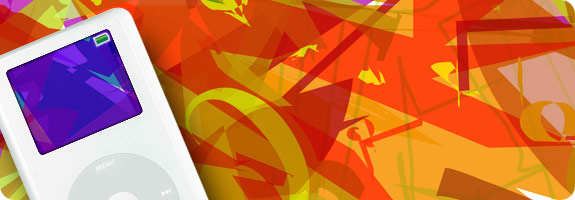
It’s been a really long time since I’ve read a column by technology geek, Steven Levy. So when I saw this topic come up in a Newsweek/MSNBC crossover article, I had to take a look.
Does Your iPod Play Favorites?
It’s an interesting question. One that I have wondered myself. (Although my most recent question on the “conspiracy theory” of the randomness of the iPod’s Shuffle function is date based… Why was it during the holidays that Shuffle on my iPod seemed to like Christmas music more when I had a library of 5000+ songs and only like 150-ish were Christmas songs? I was getting 1 out of every 3 songs coming up as a Christmas tune… very strange.)
As I read through Steven’s article, I could see where he was coming from. When we try to think of the concept of things being truly random, from a mental logic standpoint, most times we can’t really grasp the concept. When you’re dealing with a large number of possibilities with random functions, we can’t see how the patterns work well enough to really see the random at work.
It’s like this week. I usually have my iPod plugged into my PowerBook and I’ll run the thing off iTunes. I’ve had the thing running on Shuffle forever. This week, iTunes seems to have taken a liking to the song “Circles” from Joe Satriani’s Surfing With the Alien. Granted, everyday I plug it into the laptop, it starts a new random sequence, so it’s entirely possible that Shuffle is just getting “lucky” and coming up with that same song over and over again… but it makes you wonder. But really… should we wonder?
I’ll quote the article here:
I explained this phenomenon to Temple University prof John Allen Paulos, an expert in applying mathematical theory to everyday life. His conclusion: it’s entirely possible that nothing at all is amiss with the shuffle function. It’s quite common for random processes (like coin tosses) to get unlikely results here and there, like runs of six heads in a row. Over a very long time, it evens out, but it’s hard for us to envision that. “We often interpret and impose patterns on random processes,” he says, adding that this might be expected in the case of music, which evokes strong emotions. Paul Kocher, president of Cryptography Research, puts it another way: “Our brains aren’t wired to understand randomness.”
Now, having been in enough programming math classes, I understand the “science” behind the Shuffle concept. It makes complete sense on paper. But then you step outside and press play on your iPod and it plays 3 songs off one album in less than an hour.
I just find it amazing that the restrictions we impose upon our own thinking can mux that up for us.
It’s like trying to really understand the concept of eternity. We claim we understand it, but forever is a really, really long time…
Yeah. Life is random.



